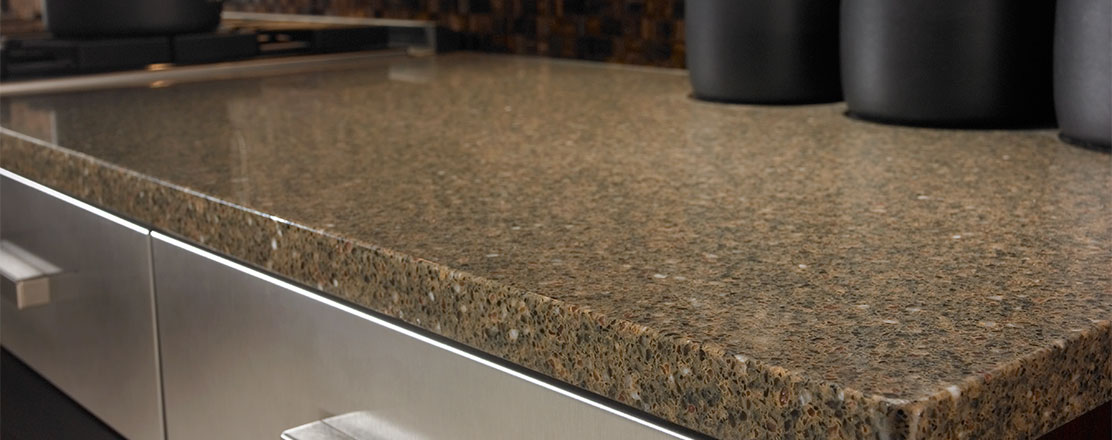There are a number of products available today that mimic the look of granite. Embossed laminates, cultured granite and faux granite finishes are all less expensive than natural stone but in every case their beauty is only skin deep.
Cultured granite is a cast polymer, a mixture of an unsaturated polyester resin, chip and dust (recycled stone particles), fillers and pigments. Calcium carbonates are used as the primary filler in cultured marble, aluminum tri-hydrate (ATH) is used in the production of cultured onyx and ATH combined with a mixture of specially formulated color chips is used to produce cultured granite.
Forms are sprayed with a gel coat that provides a smooth, transparent and glossy finished surface. The molds are then filled with cast polymer and vibro-compacted to remove air trapped in the polymer matrix. Once the mix has hardened the product is removed from the mold, trimmed and polished.
The chief selling points of cultured granite include the ability to create custom colors, mold unique shapes and sizes and to create seamless poured in place tops at a lower cost than natural stone. However because of the technical expertise and specialized equipment required to produce high quality countertops and vanities customers must be especially diligent in selecting a fabricator.
Since the surface gel coat is a relatively soft plastic it doesn’t resist scratches and abrasions like natural stone or quartz countertops. Once the glossy surface has been damaged by scuffing or scratching it is virtually impossible to restore the original luster.
In 1993 Solid Surface Designs, Inc., began business as a factory certified fabricator-installer for DuPont Corian. Since then we have grown to become the region’s largest fabricator and installer of Granite, Quartz and Solid Surface countertops.
If you need help with an estimate,give us a call at (417) 258-2787 and ask for Doug, Holly, Mitchell or Sarah.

